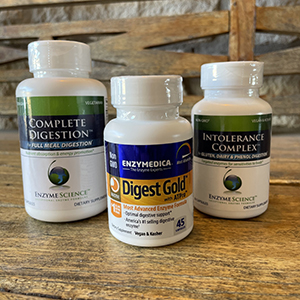 Realizing that poor food habits create disease is an overwhelming pill to swallow. Most pathologies such as diabetes, heart disease, irritable bowel, cancer, and autoimmune conditions develop over decades, making food habits ingrained and a challenge to change.
Realizing that poor food habits create disease is an overwhelming pill to swallow. Most pathologies such as diabetes, heart disease, irritable bowel, cancer, and autoimmune conditions develop over decades, making food habits ingrained and a challenge to change.
Holidays unfortunately don’t help. From Halloween candy to pumpkin pie and eggnog, constant temptation surrounds us. Even the strongest willpower eventually breaks down. Some people can get away with that occasional slice of cake or bite of ice cream, but others struggle with real organ-system damage and potentially face major health setbacks. These consequences, while seemingly unfair, are real. Knowing how to remedy the setbacks is vital.
Bad food choices happen. And you can’t go back in time, so here are some tools to assist you with holiday inflammation. Gluten and dairy sensitivities are the top 2 food intolerances that contribute to many pathologies, not just celiac disease or lactose intolerance. For the gluten and dairy-sensitive person, the best supporter for accidental exposures, cross contamination, or holiday meals of unknown ingredient origin is DPP-IV (Dipeptidyl peptidase-4). This enzyme breaks down gluten, gliadin (the proteins in wheat), and casein (the protein in dairy). It is even useful to take hours after the contamination has occurred.
The inflammation in the digestive system also has to do with imbalances in the gut flora. Gas, bloating, and abdominal pain are major signs you are fermenting your food rather than digesting. Breaking down cellulose and carbohydrate molecules in grains is a challenge for an inflamed bowel. The enzymes beta glucanase, lactase, and invertase significantly improve the breakdown and absorption of carbs into fuel for the body preventing painful gas and bloating.
Wine, raw vegetables, berries, and coffee can be hard to digest for certain people due to the phenolic compounds. While phenolic compounds found in these foods are studied for the antioxidant compounds, some people with extensive gut inflammation can actually find these hard to digest. Xylanase is the enzyme that breaks down these compounds in the plant cell wall to prevent bowel inflammation.
Oftentimes, with chronic gut inflammation, our ability to make and secrete general digestive enzymes is impeded. A broad spectrum digestive enzyme formula is foundational for nutrient absorption. Amylase, lipase, protease, glucoamylase are important enzymes in any basic digestive formula. Adding these has a huge impact on transit time both for constipation and for diarrhea.
Knowing how much of that pecan pie you can eat is hard to determine. But with the right tools, you can prevent the major consequences of inflammatory foods. While nothing can take the place of a perfect diet, this just may not be a reality for many people. All of these tools can be found at Peoples. Let the knowledgeable staff help you determine the right digestive enzymes for your situation. Don’t let holiday meals set you back. Happy Holidays!
 Select Enzymedica and Enzyme Science digestion products are currently 25% off!
Select Enzymedica and Enzyme Science digestion products are currently 25% off!
Expires 12/31/20.
 Amy Nelson, ND* received her Naturopathic Doctorate from the National College of Natural Medicine in Portland, OR where she studied nutrition, homeopathy, herbal and functional medicine. In addition, Dr. Nelson was the Associate at The IBS Treatment Center in Santa Monica where she treated irritable bowel syndrome and complex food allergies. Dr. Nelson utilizes her experience in natural medicine to address female and male hormonal imbalances, mental health, and digestive disorders.
Amy Nelson, ND* received her Naturopathic Doctorate from the National College of Natural Medicine in Portland, OR where she studied nutrition, homeopathy, herbal and functional medicine. In addition, Dr. Nelson was the Associate at The IBS Treatment Center in Santa Monica where she treated irritable bowel syndrome and complex food allergies. Dr. Nelson utilizes her experience in natural medicine to address female and male hormonal imbalances, mental health, and digestive disorders.
*Naturopathic Doctors are not currently licensed in the state of Texas.
If you have comments and/or questions about this blog, email us at blog@peoplesrx.com.
